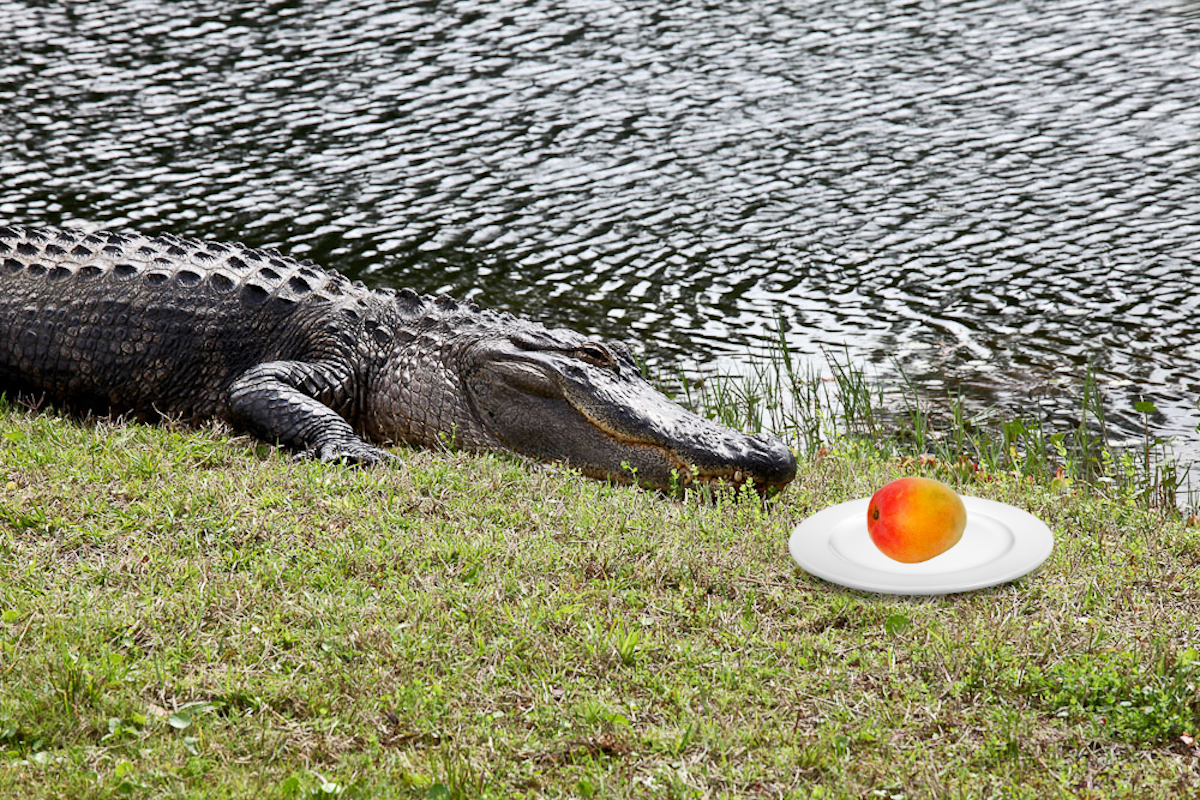
New Times artist conception/Photos by Tim Reckmann via Flickr (Mango) and Rob Bixby via Flickr (Alligator)

Audio By Carbonatix
In South Florida, even the alligators refuse to miss out on mango season.
A now-viral video posted over Memorial Day weekend by NBC 6 South Florida shows an alligator casually munching on a mango near a lake in Weston, a planned suburb that borders the Everglades in western Broward County.
The footage shows the reptile, perched on a grassy bank, open its massive jaws to bite into the fruit, gobble it down, and swallow it whole before slowly retreating into the water.
The footage sparked a curious question: Since when do alligators have a taste for mangoes?
The short answer? They usually don’t.
The Florida Fish and Wildlife Commission (FWC) says on its website that alligators are “opportunistic feeders.” While adults typically eat fish, snakes, turtles, small mammals, and birds, juvenile alligators primarily feed on insects, amphibians, small fish, and other invertebrates.
Zoo Miami communications director Ron Magill told NBC 6 he believes the incident was “a classic case of mistaken identity” and that the gator might have mistaken the mango for a small and “easily swallowed” animal.
“The alligator was reacting to more of a visual cue that it interpreted as either a small animal (turtle, possum, duck, etc.) that was either dead or simply unaware and then it grabbed it and swallowed it,” Magill said.
It’s currently peak season for both mangoes and mating alligators.
While mango season typically spans from May to October, mating season for Florida alligators, when the reptiles become noticeably more visible, active, and aggressive, runs from the beginning of April through early September.